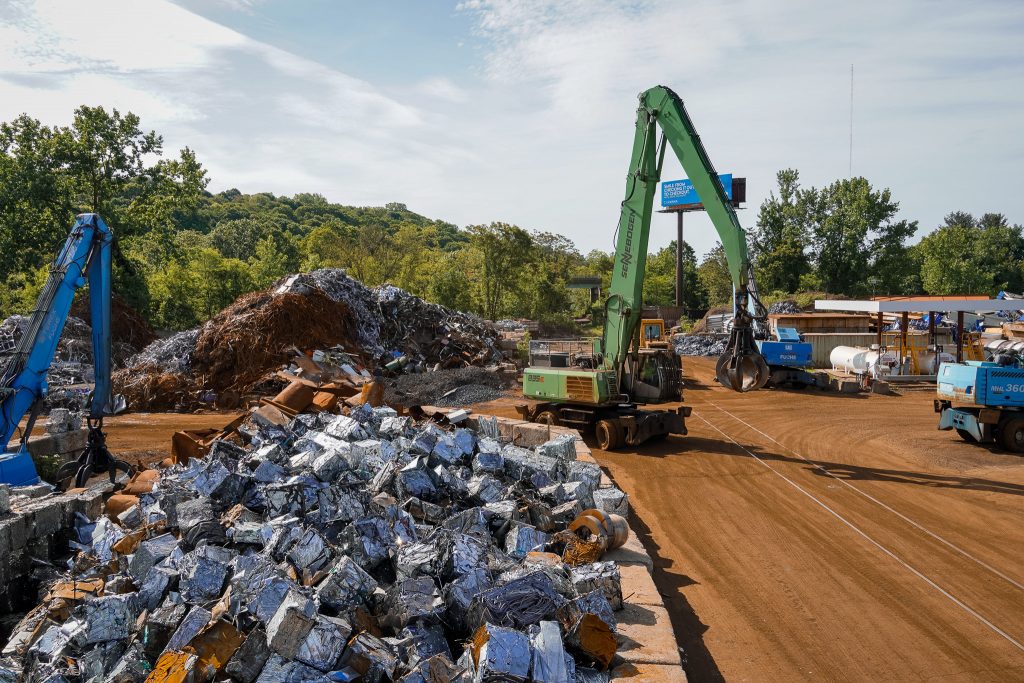From keeping valuable metals in circulation to cutting energy use and emissions, scrap metal recycling is one of the fastest, most effective ways to power a circular U.S. economy. Below is an updated look at the impact, trends, and what it means for manufacturers, municipalities, and households.

Prefer the quick-hit version? Revisit our original 15 Scrap Metal Facts or explore the Albert Bros. Scrap Metal Blog for more insights.
Whether you’re a manufacturer or a homeowner, our industrial scrap recycling capabilities and retail recycling services make it simple to turn metal waste into value.
U.S. consumption of iron and steel scrap was an estimated ~63 million tons in 2024. Electric arc furnaces already produce about 70% of U.S. steel today, with that share expected to climb as more mills lean on high-quality scrap. Source: U.S. Geological Survey.
In 2024, the U.S. recovered about 3.6 million tons of aluminum from purchased scrap—roughly 56% from new (manufacturing) scrap and 44% from old (post-consumer) scrap. Old-scrap recovery equaled about 37% of apparent consumption. Source: U.S. Geological Survey.
Closed-loop can-to-can recycling remains a standout: a used beverage can can be back on shelves as a new can in under 60 days. Sources: Aluminum Association and the Can Manufacturers Institute.
Nearly all U.S. secondary lead is recovered from old scrap—primarily vehicle and industrial batteries—making it one of the most circular metal supply chains. In 2024, secondary lead equaled ~70% of apparent domestic consumption. Source: U.S. Geological Survey.
See how we back these gains with real practices: Environmental Sustainability at Albert Bros.
Sensor-based sorting and AI are raising purity and throughput—especially for challenging non-ferrous streams:
Ready to boost landfill diversion, cut costs, and improve your sustainability profile? We can help you design a high-value program—collection, transport, processing, and transparent reporting. Contact us today to learn more.
Last updated: September 2025
Most common metals can be recycled, including steel, aluminum, copper, brass, and lead. At Albert Bros., we handle a wide variety of ferrous and non-ferrous metals. See our full list here.
Aluminum recycling saves up to 95% of the energy required to produce new aluminum, making it one of the most impactful forms of recycling for reducing greenhouse gas emissions and conserving natural resources.
A recycled aluminum beverage can may return to store shelves as a new can in as little as 60 days. Steel and other metals also re-enter the production cycle quickly once processed.
Recycling metals reduces landfill waste, saves natural resources like iron ore and coal, and lowers greenhouse gas emissions. Each ton of recycled steel, for example, avoids about 1.5 tons of CO2 emissions.
Businesses reduce disposal costs, improve sustainability reporting, and generate revenue from scrap. Albert Bros. provides industrial recycling programs designed to maximize value and efficiency.